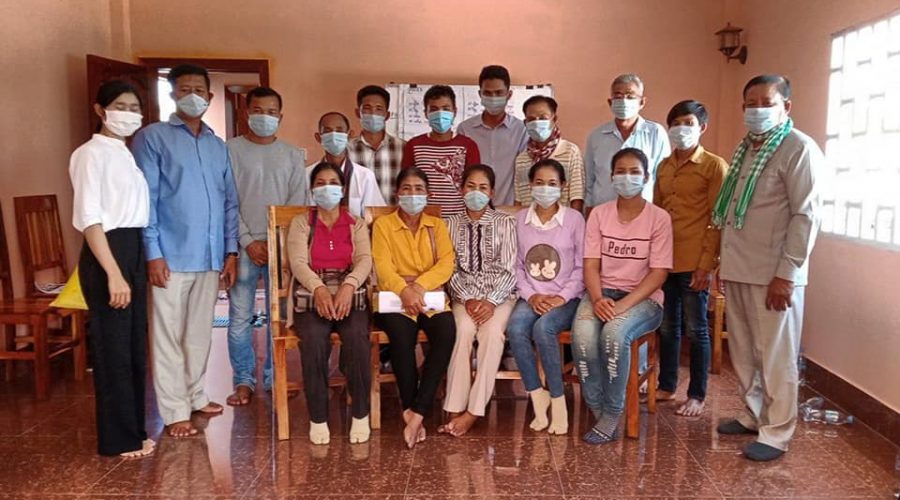
CFAP in collaboration with GRET provided a specific training on the Participatory Guarantee System (PGS) for smallholder farmers!
On 26-27 December, 2020 CFAP in collaboration with GRET organisation organised an online training course on the participatory guarantee system (PGS) for farmer members in Svay Rieng province which participated by 19 participants, 07 females come from five farmers’ organisations (4 agricultural cooperatives and 1 producer association) that they are interested in applying the PGS practices to improve their production quality to meet higher market demands with better prices. Day#1 Prior to the main training session, CFAP’s managing director Mr. Sok SOTHA had introduced about the current market demands of safe and organic agricultural products at national and international markets and increased needs of agricultural products, especially vegetable in Cambodia as local producers can produce only about 45% of the total annual need of around 1 million tons annually. Amongst the agricultural standards he shared some agricultural standards to the trainees such as Geographical Identification (GI), Organic Agriculture (OA), Good Agricultural Practice (GAP), Sustainable Rice Platform (SRP) and the Participatory Guarantee System (PGS). According to Mr. Sotha, organic agriculture in the ASEAN member countries take at least 36 months to improve the quality of soil to become organic, however Cambodia is required to take about 12 months to improve soil quality because Cambodian farmers used fewer chemical elements compared to other countries in the region. He added that organic products have increased in demands and the prices are also higher than the chemical products.
Next, CFAP’s executive secretary, Mr. Chhoem Phanna as a training facilitator and his training teamwork Ms. Pen Seyden delivered handouts, the training manuals to all trainees prior to the full training session. He introduced about the training manuals and working tools related to the PGS’s practices/application to all the trainees prior to the online training made by GRET Cambodia.
The training started at 9.00AM, the Cambodian time. The trainers Mr. Soth Visal and Mrs. Som Chanchhorvy, GRET officers/trainers welcomed to the participants and each of them introduced their names respectively to the participants. Due difficulties on technology to take each picture of the participant, therefore CFAP’s executive secretary, Phanna had introduced the participants and their farmers’ associations (agricultural cooperatives and producer association) to the trainers, then Mr. Visal made briefing about the history of the Participatory Guarantee System (PGS), IFOAM based in Italy, and experiences of farmer groups that applied the PGS supported by GRET to the participants. Visal, the PGS has not registered as a specific agricultural standard yet in Cambodia, but it would be considered highly if there are more farmers applied the program with active participation from relevant stakeholders, currently the program is set up the committee to evaluate at the group level to guarantee the products are safe and organic. There were six key areas presented during the training session as follow: –
1. Application Procedures of the Participatory Guarantee System
2. Identification of Organic Vegetable
3. Related documents and recording books
4. Monitoring and Evaluation
5. Certification
6. Sales
7. Other businesses
After the morning session, therefore CFAP continued to discuss about the production planning and selection of vegetable for improvement and sales. After the plenary discussion, therefore the training facilitator divided the participants into three discussion groups to have discussed and categorized the vegetables into four types i.e. leaves, stems, fruits and roots for growing in a rotation system to supply markets regularly with resilience to the climate change.